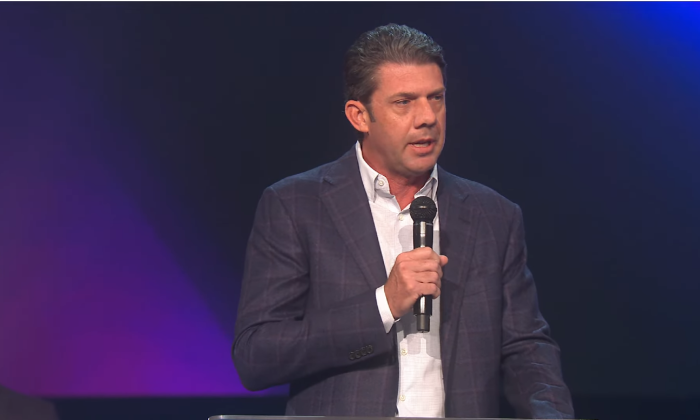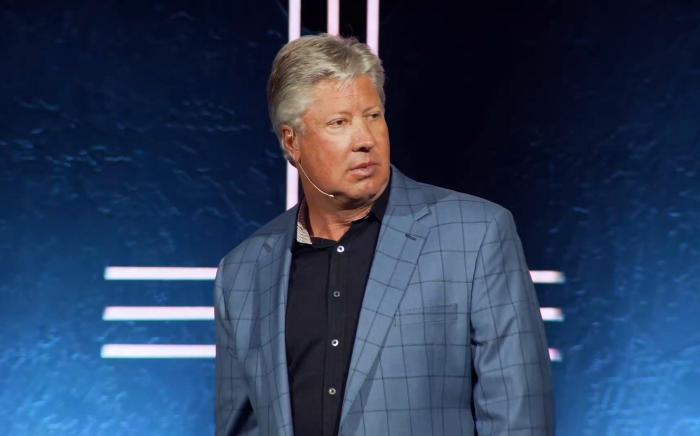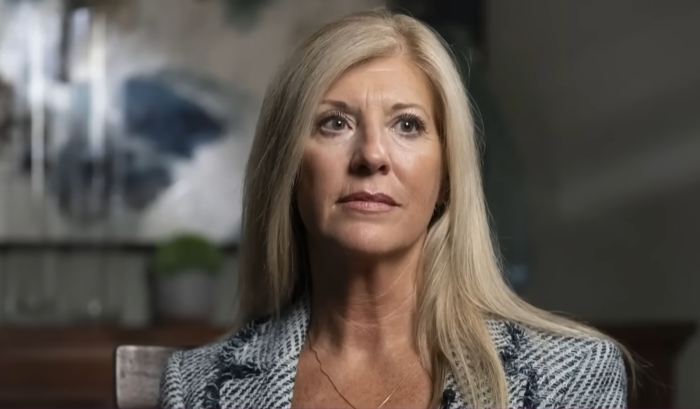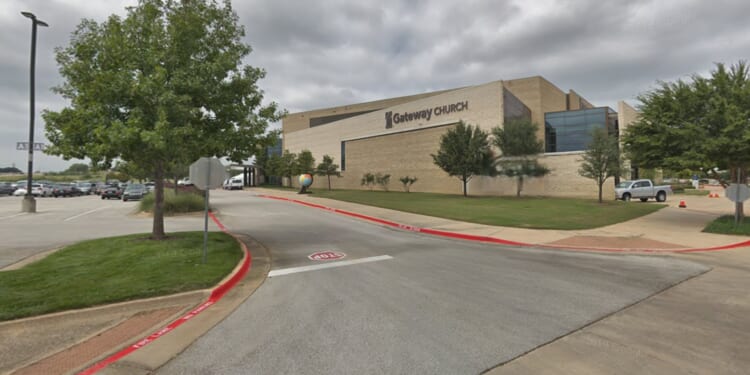
Gateway Church in Southlake, Texas, has filed a revised motion seeking to dismiss an amended class-action lawsuit accusing its former leaders of misappropriating millions of dollars in donations made by thousands of members over more than a decade by leaning into the ecclesiastical abstention doctrine, which holds that courts lack jurisdiction over matters of religion.
Church members accused Gateway Church, its founder Robert Morris and founding elder Steve Dulin of violating the Racketeer Influenced and Corrupt Organizations Act of 1970. RICO is a federal law designed to combat organized crime by holding leaders responsible for the criminal activities of their organizations.
In multiple filings in the U.S. District Court for the Eastern District of Texas Sherman Division on Monday, Gateway Church requested dismissal of the complaint due to an alleged “lack of subject matter jurisdiction and failure to state a claim.” They also asked the court to pause discovery in the case pending the resolution of their motion to dismiss the lawsuit for the stated reasons.
Gateway Church had previously asked the court to dismiss the lawsuit for lack of subject matter jurisdiction, but U.S. District Judge Amos L. Mazzant denied the motion without prejudice and stated that the defendants could refile their motion to dismiss on this point “once the record is better developed.”


In their updated motion to dismiss the church members’ case filed Monday, attorneys for Gateway Church pointed to McRaney v. North American Mission Board of the Southern Baptist Convention. The September 2025 5th U.S. Circuit Court of Appeals decision upheld the dismissal of a lawsuit filed by ordained minister Will McRaney against the North American Mission Board.
The court ruled that the ecclesiastical abstention doctrine barred McRaney’s claims for defamation and intentional interference with business relationships because resolving them would require a court to rule on “matters of faith and doctrine” and church internal management decisions.
“In McRaney, the Fifth Circuit delineated the broad scope of the ecclesiastical abstention doctrine, including its protection against claims such as Plaintiffs’ that challenge a church’s funding decisions and sermons by church leaders regarding religious doctrine and practice,” the attorneys argue.
“McRaney also confirmed that plaintiffs cannot evade the doctrine by pleading facially neutral legal claims — if the lawsuit touches on inherently religious practices (like tithing) or intrudes on matters of religious governance (like tithing expenditures), then dismissal is required. Finally, McRaney emphasized that ecclesiastical abstention ‘must be resolved at the threshold of litigation’ and is subject to ‘immediate interlocutory appeal’ if denied.”
In the amended complaint, initially filed a year ago, Gateway Church members Katherine Leach, Garry K. Leach, Mark Browder, Terri Browder and those similarly situated (former Gateway Church members and tithers) added the RICO charge against all three defendants. They also accused Morris and Dulin, in their individual capacities, of fraud and intentional and negligent misrepresentation.
The Gateway Church members allege that the defendants persuaded them and others to donate to the ministry by stating that 15% of their donations would go toward global missions and Jewish ministry partners. They say Gateway Church and Morris, who resigned last year after his sexual abuse of a child from decades ago emerged in the public eye, guaranteed they could get a refund of their donations if they were dissatisfied with how the church allocated the funds.
The lawsuit alleges that they have not been able to substantiate the church’s use of donations through transparent accounting. Both Gateway Church and Morris have denied those allegations and asked the court to dismiss the church members’ lawsuit, with support from First Liberty Institute, which filed an amicus brief. Mazzant rejected those earlier motions.
The church members argued that their lawsuit is about holding church leaders accountable, saying it was a “last resort” after multiple attempts to achieve transparency failed.
On Monday, Morris filed a partial motion to dismiss the lawsuit for failure to state a claim and requested an extension of time to file an answer with the court. He further asked the court, in a separate motion, to strike the plaintiffs’ class-action allegations because there is no agreed-upon reason each donor gave money to Gateway Church.
“This Court should strike all class allegations and dismiss all class claims in Plaintiffs’ Second Amended Complaint because Plaintiffs’ allegations make clear this case cannot be maintained as a class action,” Morris’ attorneys argue.
“The fundamental problem with Plaintiffs’ class allegations and claims is that every claim is based on the faulty and unprovable premise that every class member tithed to the Church because of Defendant’s two representations: (1) that 15% of all tithes would go to global missions and Jewish partners; and (2) tithers could get their money back,” they note.
“In other words, Plaintiffs must show for each of its claims that every class member relied on these representations, rather than anything else — like the Bible, or God’s commands, or divine discernment, or a sense of duty, or plain old generosity, or tax abatement — in deciding to tithe.”
In making the argument to dismiss, Gateway Church called tithing a practice “steeped in religious doctrine.”
“The tithe-funds decisions that Plaintiffs attack are, by their very nature, ‘steeped in religious doctrine.’ As the Court recognized in its Opinion, tithing is ‘inherently religious.’… Indeed, tithing is the ancient religious practice of giving a portion of one’s income to the church, not only as an act of charity, but of faith, trust, and obedience to God,” their attorneys note. “This understanding of tithing as an act of devotion and trust in God is shared across Christian denominations.”
Gateway Church has leaned into the protections of the ecclesiastical abstention doctrine as it faces multiple lawsuits in the wake of Morris’ child sex abuse scandal.
Morris, who founded Gateway Church in 2000, resigned in June 2024 amid an allegation that he sexually abused now 55-year-old Cindy Clemishire for years in the 1980s, beginning when she was 12, and continued with the abuse for 4.5 years after that. He was subsequently indicted on five counts of lewd or indecent acts with a child by a multi-county grand jury in Oklahoma in connection with that case earlier this year. On Oct. 2, Morris pleaded guilty to the charges and was sentenced to a six-month jail term, along with 10 years suspended.
Clemishire and her father, Jerry Lee Clemishire, filed a defamation lawsuit seeking more than $1 million in damages, alleging that Morris and Gateway Church leaders publicly mischaracterized the abuse she suffered as a consensual “relationship” with a “young lady” instead of the sexual assault of a child after the abuse was made public in 2024.
Last Friday, Texas’ Fifth Court of Appeals in Dallas halted all trial court proceedings in that case pending a mandamus review of whether or not the court has jurisdiction over the matter.
A writ of mandamus is an order “issued by a court to compel performance of a particular act by a lower court or a governmental officer or body, usually to correct a prior action or failure to act.”

The petition for mandamus review was filed on Nov. 14 by attorneys for Gateway Church and its independent elders, John D. “Tra” Willbanks, Kenneth W. Fambro II and Dane Minor. It followed Dallas County District Court Judge Emily Tobolowsky’s rejection of a motion by the church and elders to dismiss the Clemishires’ lawsuit, citing the ecclesiastical abstention doctrine.
“We are pleased that the Court of Appeals has granted our request to stay the case against Gateway and the Independent elders while it considers our strong legal arguments. Gateway and its leaders simply do not belong in this lawsuit, which asks a secular court to pass judgment on the church’s statements and actions while investigating its former pastor’s misconduct,” Ron Breaux, a partner at Haynes Boone and counsel for Gateway Church, insisted in a statement to The Christian Post.
“As we’ve stated from the beginning, no one in Gateway’s current leadership had knowledge of its former pastor’s criminal behavior, and they have endeavored to lead the church with integrity and accountability during a difficult time. These actions — guided by faith, prayer and a steadfast commitment to the church community — are protected by the First Amendment from secular second-guessing.”
Contact: leonardo.blair@christianpost.com Follow Leonardo Blair on Twitter: @leoblair Follow Leonardo Blair on Facebook: LeoBlairChristianPost

















